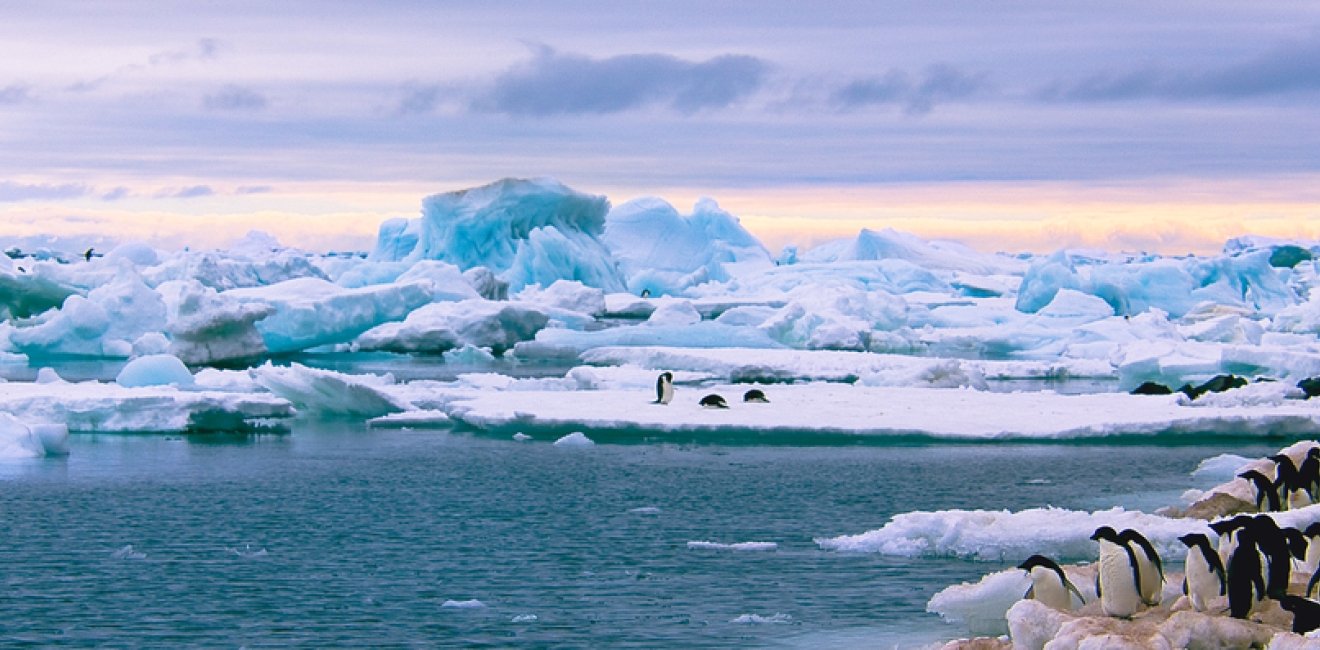
A blog of the Polar Institute
In June 2023 Members of the Commission for the Conservation of Antarctic Marine Living Resources (CCAMLR) will meet in Santiago, Chile, for a Third Special Meeting[i]. The meeting has been convened to attempt to solve the impasse that has developed over the declaration of marine protected areas (MPAs) in the Antarctic.
While the World’s largest MPA, the Ross Sea MPA, was agreed in 2016[ii], a number of other proposals to create MPAs have languished in recent years principally because of opposition from China and Russia. These proposed MPAs span the Antarctic and have been put forward to protect vulnerable habitats, species, and ecosystems; to provide special areas as scientific reference points; and to build resilience in the region from the effects of climate change and impacts of fisheries.
CCAMLR decided in 2009 to establish a representative system of marine protected areas in the Antarctic that aligned with the targets of United Nations World Summit Sustainable Development. The first marine protected area agreed by CCAMLR, the South Orkney MPA, came that year in a relatively uncontentious negotiation among members of CCAMLR. Negotiations over the Ross Sea MPA was much contentious and involved a great deal of horse-trading on area, scope, fishing rights and zoning. It was eventually agreed after high level discussions had been held between China and US Secretary of State John Kerry[iii].
Three substantive proposals for marine protected areas are currently under discussion in CCAMLR: the East Antarctic MPA, the Weddell Sea MPA, and the “Domain 1” MPA in the Antarctic Peninsula region[iv]. The East Antarctic MPA was first proposed in 2012; the Weddell Sea MPA in 2016; and the Peninsula area MPA in 2017. These three proposals are currently stalled because of opposition by China and Russia.
A recent article published by the Washington-based Institute for China-America Studies (ICAS), Why China is hesitant about endorsing marine protected area proposals in the Antarctic[v] outlines key arguments used by China in opposition to MPAs and proposes that China will gradually support further Antarctic Marine Protected Areas “on the premise of clarifying the relationship between conservation and rational use.”
The article states further that it is China’s position that MPAs “…should not impact the right to rational use” and that “…in the absence of clear scientific analysis, ‘rational use’ should gain greater consideration over ‘conservation’ in any future [MPA] agreement.” This is the crux of the article’s articulation of China’s position: China will accept MPAs (conservation) if it is satisfied that it has access to the fisheries resources it wants to exploit (rational use).
The fundamental problem with this approach is that it intentionally, or mistakenly, undermines the very agreement that provides for access to fisheries in the Antarctic, the Convention on the Conservation of Antarctic Marine Living Resources (CAMLR Convention)[vi]. The CAMLR Convention clearly states: “The objective of this Convention is the conservation of Antarctic marine living resources.” In referring to “rational use”, the Convention permits the harvesting of species in so far as that harvesting is consistent with the objective of conservation. The Convention’s Article II outlines the conditions to be addressed in relation to “any harvesting or related activities undertaken in the Area…”.
The idea there is some inherent equivalence between conservation and rational use in the Convention, and that CCAMLR is merely a regional fisheries management organisation, fundamentally misconstrues both the Convention and the responsibilities of its Commission[vii]. The USA and Australia jointly laid out the legal context of rational use in the context of conservation in the Convention in 2016[viii].
Russia, although it is not presently fishing in the Antarctic, has also raised arguments about the balance between conservation and rational use. It seems likely that these arguments will be reprised at the Special Meeting in June.
The ICAS article says further that China’s “…major concerns in relation to scientific and legal aspects of the proposals have not been addressed by the proponents.” This is a classic ‘how long is a piece of string’ argument. Full scientific certainty is not attainable in Antarctic marine systems. The proposition that decisions should not be taken based on the best available science runs contrary to the precautionary approach, and to the objective of the Convention itself. The fallacy of taking this position is that catch limits for harvested species are already set on the basis of the “best available science”.
The ICAS article further states that “…any MPA that prohibits fishing does not fully conform to the interests of China as a major fishing nation.” Three things must be said about this argument. The first is that taken as a whole, the various MPA proposals have within them a range of management measures, including that some fisheries and areas will remain open to fishing. The second is that there are already areas closed to fishing under other measures adopted by CCAMLR that do not create MPAs. The third is that closing areas to fishing does not affect the calculation of total allowable catches – such measures would displace the fishery, not close or reduce it.
The last issues I wish to address that are contained in the ICAS article are the peculiar arguments on capacity and sovereignty. The ICAS article states that “ …China does not yet have the capacity to consistently contribute to enforcement activities” and that “…MPA enforcement could ultimately cause China to lose influence over maritime governance and put it at a distinct disadvantage if existing territorial claimants try to reassert their sovereignty over disputed regions.”
Capacity to enforce measures in the Antarctic affects all Parties individually and collectively. Geographical proximity to Antarctica and differing maritime capabilities of states means that some countries are able to respond more rapidly, or have more resources, than others for operating in the Southern Ocean. To propose that MPAs should be forestalled because of this is not a strong geopolitical argument. A stronger argument would be for all states in CCAMLR, including China, to encourage the adoption of inspection and enforcement regimes that utilise modern technologies to reduce compliance costs, such as remote sensing.
The matter of sovereignty in the Antarctic Treaty area (nested within the Convention area) is well resolved by the Antarctic Treaty itself, and is reflected exactly in the CAMLR Convention. To argue that China is somehow at a “distinct disadvantage” if MPAs are established now is an incorrect interpretation of the Convention, and appears at odds with China’s previous agreement to the existing MPAs.
China will not be disadvantaged in reaching consensus with other Parties to the CAMLR Convention in establishing marine protected areas. All Members participating in the June Special Meeting of CCAMLR should ensure that the path forward secures the objective of the Convention and not a reinterpretation of the long-standing body of international law that protects the Antarctic environment.
[i] The notice of the meeting is here: https://meetings.ccamlr.org/en/ccamlr-sm-iii .
[ii] See https://cmir.ccamlr.org/node/1
[iii] See https://www.nytimes.com/2020/10/26/opinion/climate-change-antartica-china.html
[iv] See https://www.antarctica.gov.au/about-antarctica/law-and-treaty/ccamlr/marine-protected-areas/eampa/
[v] See https://chinaus-icas.org/research/why-china-is-hesitant-about-endorsing-marine-protected-area-proposals-in-the-antarctic/
[vi] See https://www.ccamlr.org/en/organisation/camlr-convention-text#II
[vii] See here: https://www.elgaronline.com/display/edcoll/9781788977425/9781788977425.00010.xml;
[viii] See: (https://www.tandfonline.com/doi/abs/10.1080/10357718.2022.2057920?casa_token=cu2LaQF5oFIAAAAA%3AfA1xrZavq8PZY8Q53YucBGb3K06z-ZpcxNs-qdJZ-LK0MEOOr4ebCkUHaOADVr5rLvxKlFrmoSYpFA&journalCode=caji20
Author


Polar Institute
Since its inception in 2017, the Polar Institute has become a premier forum for discussion and policy analysis of Arctic and Antarctic issues, and is known in Washington, DC and elsewhere as the Arctic Public Square. The Institute holistically studies the central policy issues facing these regions—with an emphasis on Arctic governance, climate change, economic development, scientific research, security, and Indigenous communities—and communicates trusted analysis to policymakers and other stakeholders. Read more

Explore More in Polar Points
Browse Polar Points
Greenland’s New Governing Coalition Signals Consensus

Fulbright Arctic Initiative IV Scholar at the Polar Institute


